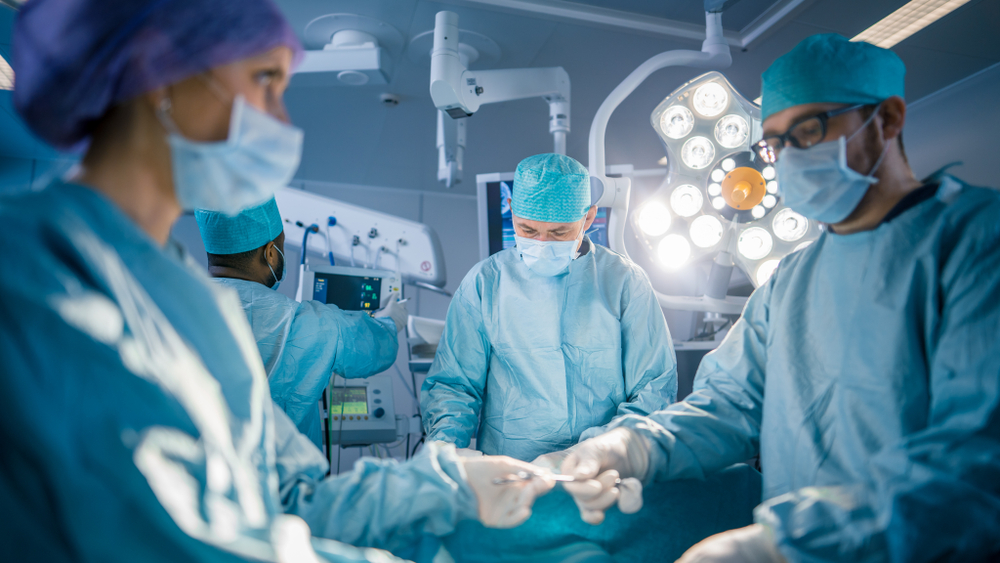Diabetes is a condition that makes it difficult to maintain overall good health. Elevated blood sugar levels can damage blood vessels and nerves, increase the risk of heart disease and stroke, and cause kidney problems, as well as affecting eyesight and causing potentially serious foot problems. In addition to these issues, however, diabetes also makes it more likely that patients will encounter complications after surgery.
Surgical procedures and anesthesia put stress on the body that can result in high blood sugar levels after surgery for anyone, not just diabetics. It is believed that the stress hormone cortisol, along with neurotransmitters called catecholamines, which are released in response to the physical trauma of surgery, can cause increased insulin resistance, raising glucose levels after surgery. It’s also common for activity levels and diet to be dramatically different after surgery, when pain or nausea may depress the appetite and it may be physically impossible to maintain a previous exercise regimen, adding to the challenge of keeping blood sugar levels in a normal range.
Patients with diabetes, who already face challenges in maintaining a healthy glucose level, are more likely to have trouble with high blood sugar after surgery. This can lead to serious difficulties with healing.
How High Blood Sugar Affects Surgery and Recovery
High blood sugar interferes with the body’s ability to recover after surgery in multiple ways. First, it impedes the function of the immune system, slowing down healing and increasing the likelihood that a wound will become infected. Studies have shown that even slightly elevated blood sugar can increase the risk of a postoperative infection from 2% to 18%. In addition to slow or poor wound healing, hyperglycemia after surgery can increase the risk of fluid and electrolyte imbalances, kidney problems, heart and/or lung issues, neurological complications, stroke, or death.
Diabetics may already have impaired circulation prior to surgery as well, as they are at higher risk of developing atherosclerosis and peripheral artery disease (PAD). High levels of insulin can also make arteries and veins less flexible. Restricted circulation to the limbs, or to the heart and other organs, slows healing times and increases the risk of a poor outcome.
Additional Surgical Risks for Diabetics
Certain medications used to regulate blood sugar may also increase the risk of complications after surgery. Metformin is associated with an elevated risk of lactic acidosis (a buildup of lactic acid in the blood) after surgery, especially for patients who also have impaired kidney function. SGLT2 inhibitors can raise the risk of developing diabetic ketoacidosis (a buildup of ketones in the blood) after surgery. Both of these conditions are potentially fatal.
Improving Outcomes
Given the potential risks of surgery for diabetic patients, careful blood sugar management is of the utmost importance both before and after any procedure. Patients may also want to consider additional steps or alternatives that can improve results and lower the likelihood of dangerous complications. For example, a common reason diabetics may require surgery is to address nonhealing wounds on the legs or feet. Before a foot ulcer progresses to the point where amputation might be necessary, it is possible to restore blood flow through arteries affected by PAD with nonsurgical techniques. This allows the wound to heal naturally without additional risk caused by further incisions and anesthesia.
Similarly, diabetic patients faced with the prospect of knee replacement surgery, with its large incisions and arduous recovery process, may hesitate at the risk, or may have been told they aren’t good candidates for the procedure. Genicular artery embolization (GAE) can be an appropriate alternative in these cases. This outpatient procedure provides long-term relief for knee pain and inflammation with a minimal recovery period. Because it does not require general anesthesia and is performed with only a tiny incision, the risk of infection, slow healing, or blood sugar fluctuations is dramatically reduced compared to traditional surgery.
Expert Noninvasive Care
At AVA Vascular, experienced interventional radiologist Dr. Nik Patel specializes in minimally invasive techniques that improve health and reduce pain without the risks that major surgery can bring. To learn more about the options that can help you avoid surgery and reclaim your quality of life, contact AVA Vascular here.





